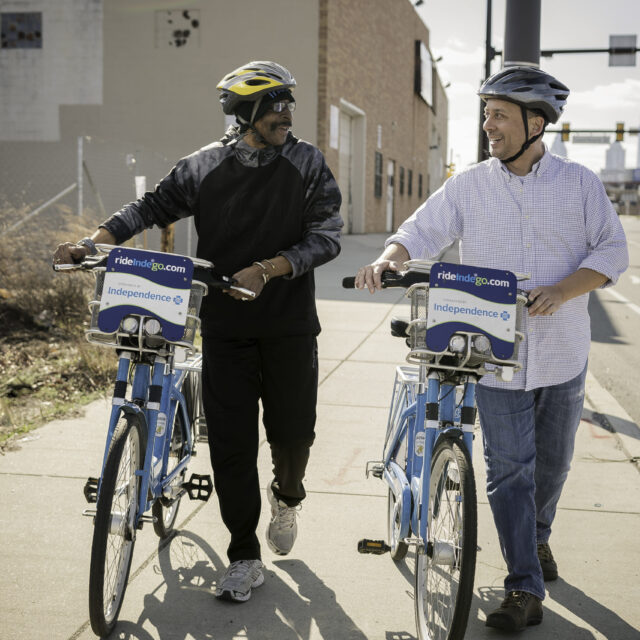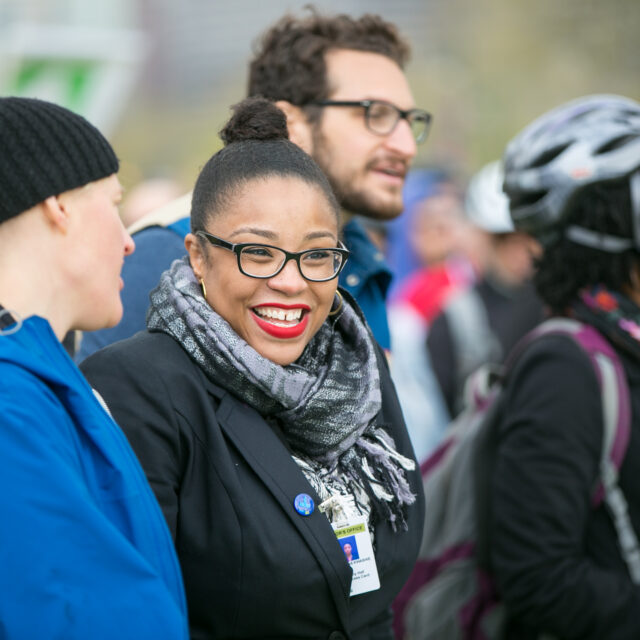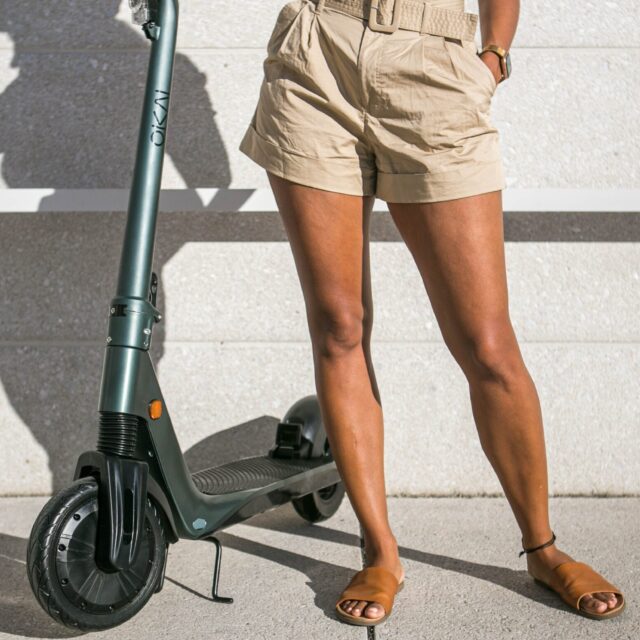A Q&A With Veronica Davis
by Kiran Herbert, Communications Manager
June 25, 2021
NABSA’s 2021 keynote conference speaker offers her thoughts on the state of shared micromobility and what she hopes to see from the industry in the future.

This piece was originally published on the North American Bike Share Association (NABSA) website.
NABSA’s 2021 conference, Rolling With It: Empowering Shared Micromobility, is a two-day virtual gathering of shared micromobility and transportation leaders, practitioners, and equipment providers. From October 27-28, the conference will tackle important issues facing the industry and learn, network, and chart the future of shared micromobility. Register today to participate in valuable, diverse interactive sessions on key topics in the industry from anywhere in the world.
We’re especially excited to hear from Veronica O. Davis, PE, who will deliver the Opening Keynote to help kick off the conference. Davis is a self-described transportation nerd. She believes all people should have access to safe, reliable, and affordable transportation. She currently service as the director of transportation and drainage operations for the City of Houston. Previous experience includes managing major urban planning functions such as transportation planning, policy development, master planning, sustainability analysis, and long-range planning. She is also a registered professional engineer in Texas, the District of Columbia, Maryland, Virginia, North Carolina, and Georgia.
In July 2012, Davis was recognized as a Champion of Change by the White House for her professional accomplishments and community advocacy, including co-founding Black Women Bike.
We spoke to Davis to learn more about her thoughts on the state of shared micromobility and what she hopes to see from the industry in the future.
A Q&A With Veronica Davis
NABSA: It’s 3021 and shared micromobility now includes jetpacks and hover boots. You’ve been asked to develop the next shared micromobility vehicle of the future. What would it be and why?
Veronica Davis: Air taxis like the one Bruce Willis has in The Fifth Element.
What trends in shared micromobility do you find most promising?
E-bikes are the most promising. They making biking accessible to more people. It’s giving families an alternative to having a second car.
If you could instantly change something about our transportation network, what would it be?
Removing highways and other infrastructure that separates communities in urban areas.
You’ve said that your dream project would be designing an urban area that prioritizes pedestrians. What are your thoughts on the surge in pedestrian-only areas and slow streets that came about due to the pandemic?
A: Pedestrian-only streets were great for convincing decision-makers to make the hard decisions. One challenge of that surge is that it did not account for people who rely on public transportation to access employment. When you look at cities that have pedestrian-only spaces, they also have a robust and reliable transit system.
What do you think needs to happen to make infrastructure like this permanent in our cities?
Improving public transportation is going to be key to getting more people using sidewalks and biking. The “security” of having a vehicle in case of an emergency needs to be replaced by something else.
As co-founder of Black Women Bike, you’re working to remove barriers that may keep black women and girls away from using bikes as a tool for entertainment, wellness, and transportation. What role do you think shared micromobility can play in working to eliminate similar barriers for people of color and other marginalized and underrepresented groups?
The barriers that exist cannot be eliminated by micromobility alone.0 When BWB asked women why they don’t bike for transportation what comes up are fear of getting lost, fear of having an emergency and not being able to get assistance, not knowing how to make minor repairs to their bicycle, and concerns around safety (personal safety and traffic safety). One micromobility trend that is making biking more accessible are e-bikes.
The Better Bike Share Partnership is funded by The JPB Foundation as a collaboration between the City of Philadelphia, the National Association of City Transportation Officials (NACTO) and the PeopleForBikes Foundation to build equitable and replicable bike share systems. Follow us on Facebook, Twitter and Instagram or sign up for our weekly newsletter. Got a question or a story idea? Email kiran@peopleforbikes.org.



